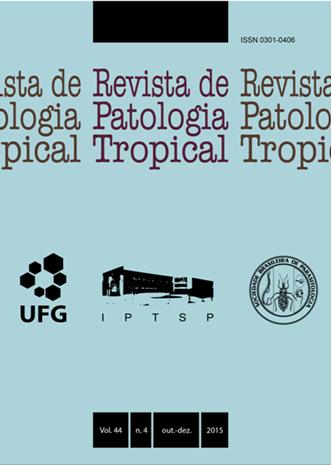KNOWLEDGE ABOUT PARASITE INFECTIONS AMONG PREGNANT AND POSTPARTUM WOMEN WHO ATTENDED A UNIVERSITY HOSPITAL IN NITEROI, RIO DE JANEIRO, BRAZIL
DOI:
https://doi.org/10.5216/rpt.v44i4.39229Keywords:
Parasite, knowledge, pregnancy.Abstract
Parasite infections are frequent in Brazil during pregnancy. The aim of the present study was to assess the knowledge about parasite infections among pregnant and post-partum women, attending a public University Hospital in Niteroi, RJ, Brazil. Knowledge was assessed using a standardized interview and questionnaire. A total of 100 interviews were conducted (60 pregnant and 40 post-partum women). Educational achievement did not influence knowledge about parasites. The majority of the women interviewed stated that they habitually always washed hands after using the bathroom and before eating. Consumption of fruits and vegetables was prevalent, but 17% did not wash them before eating and 39% ate raw or undercooked meat. Educational achievement and number of pregnancies did not influence hygiene habits. Neither the late pre-natal care nor the number of pregnancies influenced knowledge about parasites. Also, there was no correlation between the initial date of pre-natal care and the number of correct answers in the questionnaire. Similarly, there was no association between the initial date of pre-natal care and receiving information about parasite infections. 79% of the women interviewed stated that they had never received any information about parasite infection and pregnancy, and the harm it could cause to them and/or their baby. Despite advances in pre-natal care assistance in the last decade, the lack of knowledge among pregnant and post-partum women regarding parasites and risk factors for infection still remainsDownloads
Downloads
Published
How to Cite
Issue
Section
License
The manuscript submission must be accompanied by a letter signed by all authors stating the full name and email address, confirming that the material has not been published or is under consideration for publication elsewhere, and agreeing to transfer copyright in all media and formats for Journal of Tropical Pathology. The authors will not be paid for published articles. They are solely responsible for the content of those articles, even if the Editor holds the right to adjust them to the norms of the journal.
The reviewers will not be paid for the peer review process.

